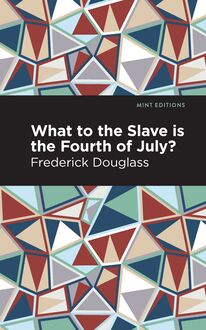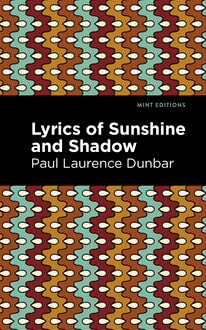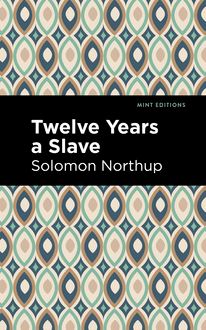-
 Univers
Univers
-
 Ebooks
Ebooks
-
 Livres audio
Livres audio
-
 Presse
Presse
-
 Podcasts
Podcasts
-
 BD
BD
-
 Documents
Documents
-
- Cours
- Révisions
- Ressources pédagogiques
- Sciences de l’éducation
- Manuels scolaires
- Langues
- Travaux de classe
- Annales de BEP
- Etudes supérieures
- Maternelle et primaire
- Fiches de lecture
- Orientation scolaire
- Méthodologie
- Corrigés de devoir
- Annales d’examens et concours
- Annales du bac
- Annales du brevet
- Rapports de stage
La lecture à portée de main
Vous pourrez modifier la taille du texte de cet ouvrage
Découvre YouScribe en t'inscrivant gratuitement
Je m'inscrisDécouvre YouScribe en t'inscrivant gratuitement
Je m'inscrisEn savoir plus
Vous pourrez modifier la taille du texte de cet ouvrage
En savoir plus

Description
The Hindered Hand (1905) is a novel by Sutton E. Griggs. Sutton’s fourth novel is a story of race and identity that explores and critiques the politics of liberalism and assimilation in twentieth century America. Although Griggs’ novels were largely forgotten by the mid-twentieth century, scholars have recently sought to emphasize his role as an activist and author involved with the movement for Black nationalism in the United States. Critics since have recognized Griggs as a pioneering political figure and author whose utopian themes and engagement with contemporary crises constitute some of the era’s most radical literary efforts by an African American writer. The South is changing. In the city of Almaville, a burgeoning Black middle class offers hope to a people oppressed for centuries. Ensal Ellwood, a veteran of the Spanish American War, returns home to a community flowering with possibility yet inextricably rooted in a history of violence. As his political conscience wavers between Black nationalism and assimilation, he meets the beautiful Tiara Marlow, a young woman who has only just arrived in Almaville. When his friend is murdered in cold blood by a white lynch mob, Ensal flees America for Africa, where he is presented with a fateful choice. Engaged with some of the leading social issues of its era—American imperialism, lynching, and the movement for economic and political self-determination in the Black community—The Hindered Hand is a brilliant novel from an underrecognized talent of twentieth century literature. With a beautifully designed cover and professionally typeset manuscript, this edition of Sutton E Griggs’ The Hindered Hand is a classic work of African American literature reimagined for modern readers.
Sujets
Informations
| Publié par | Mint Editions |
| Date de parution | 08 juin 2021 |
| Nombre de lectures | 0 |
| EAN13 | 9781513298320 |
| Langue | English |
| Poids de l'ouvrage | 1 Mo |
Informations légales : prix de location à la page 0,0500€. Cette information est donnée uniquement à titre indicatif conformément à la législation en vigueur.
Extrait
The Hindered Hand
Sutton E. Griggs
The Hindered Hand was first published in 1905.
This edition published by Mint Editions 2021.
ISBN 9781513296821 | E-ISBN 9781513298320
Published by Mint Editions®
minteditionbooks.com
Publishing Director: Jennifer Newens
Design & Production: Rachel Lopez Metzger
Project Manager: Micaela Clark
Typesetting: Westchester Publishing Services
C ONTENTS T UNING THE L YRE I. O CCURRENCES T HAT P UZZLE II. H IS F ACE W AS H ER G UIDE III. W HEREIN F ORESTA F IRST A PPEARS IV. T HE W AYS OF A S EEKER A FTER F AME V. R ATHER L ATE I N L IFE T O B E S TILL N AMELESS VI. F RIENDLY E NEMIES VII. O FFICERS O F T HE L AW VIII. A M ESSENGER T HAT H ESITATES IX. A P LOTTER I S H E X. A RABELLE S EABRIGHT XI. U NUSUAL F OR A M AN XII. A H ONEYMOON O UT O F T HE U SUAL O RDER XIII. S HREWD M RS . C RAWFORD XIV. A LENE AND R AMON XV. U NEXPECTED D EVELOPMENTS XVI. A N E AGER S EARCHER XVII. P ECULIAR D IVORCE P ROCEEDINGS XVIII. M ISTS T HAT V ANISH XIX. T HE F UGITIVES F LEE A GAIN XX. T HE B LAZE XXI. P LANNING T O A CT XXII. T HE T WO P ATHWAYS XXIII. T HEY G RAPPLE XXIV. O UT OF J OINT W ITH H IS T IMES XXV. A J OYFUL F AREWELL XXVI. G US M ARTIN XXVII. T IARA M YSTIFIES U S XXVIII. P OOR F ELLOW XXIX. A R EVELATION XXX. M R . A. H OSTILITY XXXI. T WO OF A K IND XXXII. W ORKING AND W AITING XXXIII. B ACK IN A LMAVILLE XXXIV. A G REAT D AY IN C OURT XXXV. E UNICE ! E UNICE ! XXXVI. E NTHUSIASTIC J OHN B LUE XXXVII. P OSTPONING H IS S HOUT OF T RIUMPH XXXVIII. H E C ANNOT , B UT H E D OES ! XXXIX. A S ON OF THE N EW S OUTH XL. S ORROW AND G LADNESS N OTES FOR THE S ERIOUS A H INDERING H AND
T UNING THE L YRE
In the long ago when the earth was in process of formation, it must have been that those forces of nature most expert in the fashioning of the beautiful were ordered to come together as collaborators and give to the world Almaville!
Journeying toward the designated spot, they halted on the outskirts of the site of the contemplated city, and tossed up a series of engirdling hills, whose slopes and crests covered with verdure might afford in the days to come a beautiful sight to the inhabitants when riding forth to get a whiff of country air. These same forces of nature, evidently in love with their work, arranged, it seems, for all the beautiful clouds with their varying hues to pass in daily review over the head of the city to be born.
In all that appertains to physical excellence Almaville was made attractive, and somewhere, perhaps behind yon hills, the forces rested until man set his foot upon the soil and prepared to build. They so charged the air and all the environments with the spirit of the beautiful, that the men who later wrought in building the city found themselves the surprised and happy creators of a lovely habitation.
On an eminence crowning the center of the area whereon the city is planted, the State has builded its capitol, and from the tower thereof one can see the engaging network of streets, contemplate the splendid architecture of the buildings, and gaze upon the noble trees that boldly line the sidewalks, and thus testify that they are not afraid of civilization.
Even in the matter of climate Almaville is highly favored, it would seem. Her summers are not too hot nor her winters too cold, and many a fevered brow finds solace in her balmy breezes.
The war gods saw and admired her, and decreed that one of the famous battles of the Civil War should be fought within her environs, that their memory might ever be cherished here.
Philanthropy, it seems, singled out Almaville for special attention, granting unto her opportunities for learning that well might cause proud Athens to touch her crown to see that it was still there and had not been lifted by her modern rival.
A murky river runs through Almaville and a dark stream flows through the lives of all of us who dwell upon its banks. But yonder! yonder! is the ocean! Where?
T HE A UTHOR
I
O CCURRENCES T HAT P UZZLE
To the pagan yet remaining in man it would seem that yon railroad train plunging toward the Southland is somehow conscious of the fact that it is playing a part in events of tremendous import, for observe how it pierces the darkness with its one wild eye, cleaves the air with its steely front and causes wars and thunders to creep into the dreams of the people by whose homes it makes its midnight rush.
Well, this train now moving toward Almaville, queen city of the South, measured by the results that developed from that night’s journey, is fully entitled to all its fretting and fuming, brag and bluster of steam and smoke, and to its wearisome jangle of clanging bell and shrieking whistle and rumbling wheel.
It was summer time. A Negro porter passing through a coach set apart for white passengers noted the fixedness with which a young woman with a pretty face and a pair of beautiful blue eyes was regarding him. Her head was inclined to one side, her hand so supporting her face that a prettily shaped ear peeped out from between her fingers. In the look of her eye there was a slight suggestion of immaturity, which, however, was contradicted by the firm outlines of her face. As the porter drew near her seat she significantly directed her look to a certain spot on the car floor, thence to the eyes of the porter.
Having in mind the well understood dictum of the white man of the South that the Negro man and the white woman are to be utterly oblivious of the existence of each other, this Negro porter was loth to believe that the young woman was trying surreptitiously to attract his attention, and he passed out of the coach hurriedly. In a short while he returned and again noted how intently the young woman regarded him. This time he observed that she had evidently been weeping and that there was a look of hopeless sorrow in her eyes. Again the young woman looked at him, then upon the floor and up at him once more. The porter looked down upon the spot indicated by her look, saw a note, stooped and picked it up. He returned to the coach or rather to the end of a coach, set apart for Negroes, took a rear seat and surveyed the car preparatory to reading the note which the young woman plainly indicated was for him.
“I don’t want white girls passing me notes,” thought the Negro, clutching the note tightly and continuing to glance about the coach in a half-frightened manner. He arose to hoist the window by which he sat, intending to utilize it to be rid of the note in case the occasion should demand it. His fears had begun to suggest to him that perhaps some white man had noticed his taking cognizance of the young woman’s efforts to attract his attention.
As the Negro section of the coach was the forward section and next to the baggage car, any person coming from the section set apart for the whites would be to the back of the Negro passengers. The porter therefore changed his seat, going forward and taking a position where he would be facing any one coming from the coach for whites. He raised the window by which he sat and his eye wandered out into the darkness amid the sombre trees that went speeding along, and there arose to haunt him mental visions of a sea of angry white faces closing around some one dark face, perhaps guilty and perhaps innocent; and as he thought thereon he shuddered. He felt sorely tempted to toss the note out of the window unread, but remembering the pleading look on the face of the young woman he did not follow the promptings of his fear.
“In case of trouble, this crew in here couldn’t help a fellow much,” said the porter, moving his eyes about slowly again, taking note one by one of those in the section with him. There was the conductor, who though a white man, seemed always to prefer to sit in the section set apart for the Negroes. There was the newsboy, also white, taking up two seats with his wares.
“As well as they know me they would go with the other gang. A white man is a white man, and don’t you forget it,” mused the porter.
There were two male passengers sitting together, Negroes, one of whom was so light of complexion that he could easily have passed for white, while the other was of a dark brown hue.
“A fine looking fellow,” thought the porter concerning the dark young man.
Across the aisle from the two young men mentioned, and a seat or so in advance of them, sat a young woman whose face was covered with a very thick veil. The perfect mould of her shoulders, the attractiveness of her wealth of black hair massed at the back of her head—these things were demanding, the porter noticed, many an admiring glance from the darker of the two young men.
The porter seemed about to forget his note in observing with what regularity the young man’s eyes would wander off and straightway return to rest upon the beautiful form of the young woman, but an incident occurred that brought his mind back very forcibly to the note. The door from the section for the whites opened and two white men entered.
The porter’s hand in which the note was held cautiously crept toward the open window, while he eyed the two white men whom he feared had come to accuse him of an attempted flirtation with a young white woman. One of the men reached behind to his hip pocket and the porter half arose in his seat, throwing up his hands in alarm, expecting a pistol to appear to cover him. The white man was simply drawing out a flask of whiskey to offer his companion a drink.
Ensal Ellwood, the dark young man, looking around to see if the parties who had entered had closed the door behind them (for the adjoining section was the white people’s smoking apartment, and care had to be exercised to keep smoke and tobacco fumes out), saw the two white men about to take a drink. He arose quickly and advancing to the two men, said quietly, urbanely and yet with an air of firmness,
“Gentlemen, the law prescribes that this coach shall be used exclusively by Negro passengers and we mus
-
 Univers
Univers
-
 Ebooks
Ebooks
-
 Livres audio
Livres audio
-
 Presse
Presse
-
 Podcasts
Podcasts
-
 BD
BD
-
 Documents
Documents
-
Jeunesse
-
Littérature
-
Ressources professionnelles
-
Santé et bien-être
-
Savoirs
-
Education
-
Loisirs et hobbies
-
Art, musique et cinéma
-
Actualité et débat de société
-
Jeunesse
-
Littérature
-
Ressources professionnelles
-
Santé et bien-être
-
Savoirs
-
Education
-
Loisirs et hobbies
-
Art, musique et cinéma
-
Actualité et débat de société
-
Actualités
-
Lifestyle
-
Presse jeunesse
-
Presse professionnelle
-
Pratique
-
Presse sportive
-
Presse internationale
-
Culture & Médias
-
Action et Aventures
-
Science-fiction et Fantasy
-
Société
-
Jeunesse
-
Littérature
-
Ressources professionnelles
-
Santé et bien-être
-
Savoirs
-
Education
-
Loisirs et hobbies
-
Art, musique et cinéma
-
Actualité et débat de société
- Cours
- Révisions
- Ressources pédagogiques
- Sciences de l’éducation
- Manuels scolaires
- Langues
- Travaux de classe
- Annales de BEP
- Etudes supérieures
- Maternelle et primaire
- Fiches de lecture
- Orientation scolaire
- Méthodologie
- Corrigés de devoir
- Annales d’examens et concours
- Annales du bac
- Annales du brevet
- Rapports de stage




















